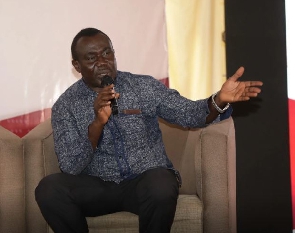 Kwasi Nyamekye is AGI Chairman for Ashanti, Bono, Bono East and Ahafo Regions
Kwasi Nyamekye is AGI Chairman for Ashanti, Bono, Bono East and Ahafo Regions
The Association of Ghana Industries (AGI) has expressed disdain for government’s seemingly lackadaisical attitude toward ensuring that the business environment is conducive enough for manufacturers.
According to AGI, the operating environment is very tough because Ghana is the only country in West Africa where industry pays higher electricity tariffs than households.
Electricity tariffs in the country over the first and second quarters of the year have increased by 29.96 and 18.36 respectively, totalling 48.32 percent.
According to the Public Utilities and Regulatory Commission (PURC), the rationale behind this upward adjustment is to position utility companies to recover the cost of electricity generation and supply – while preventing the recurrence of erratic electricity supply (dumsor) with its adverse implications on jobs and livelihoods.
It further explained that since announcing the first-quarter tariff decision in January 2023, key variables underlying the rate-setting have changed – resulting in increases of natural gas and electricity cost for the second quarter of 2023.
However, the Ashanti Regional Chairman for AGI, Kwasi Nyamekye, in an interview with the B&FT wondered why government continues to make the business environment difficult with this increment.
“Operating in Ghana is difficult. I don’t understand why policymakers are not looking at making the business environment competitive for industry. Day in day out, policies are made and you don’t even know who they consulted with,” he said.
Mr. Nyamekye, expressing his disappointment with the tariff increment, noted that this could lead to the closure of some industries – which would lead to increases in unemployment.
“Already, we are paying high tariffs which are eating into our margins; and gradually, if the margins are eroded, businesses will fold-up – and if we fold-up, people will be unemployed. We are just waiting to see whether we can survive.
“The more you tighten certain things the more you close businesses, leading to unemployment. And we all know what will happen if we have more young men on the streets not working. We are advising government to take a second look,” he added.
He warned that if this is not checked it will be difficult for industries in the country to compete favourably with manufacturers from other African countries, particularly with implementation of the African Continental Free Trade Area.